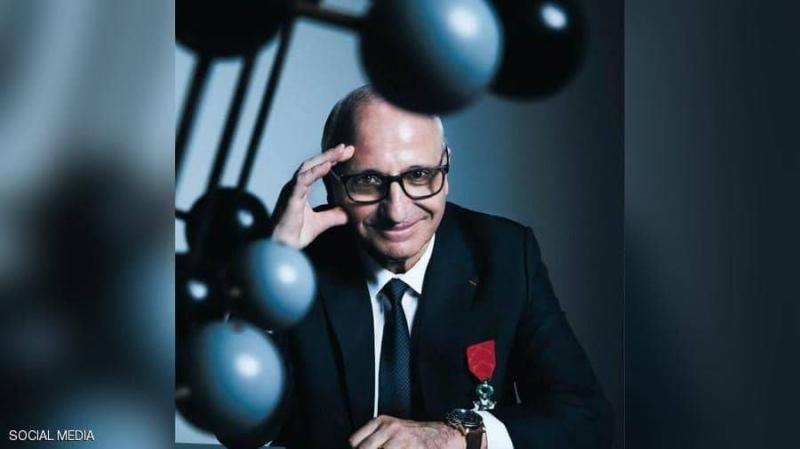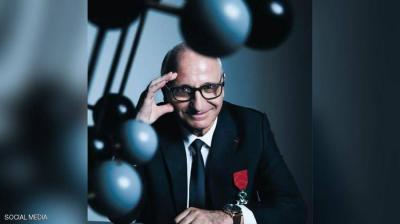Moroccan inventor Rachid Yazami has announced that he, along with researchers from his company, has achieved a world record in the field of lithium battery charging. Yazami stated that he managed to charge a lithium-ion battery from zero to one hundred percent in just ten minutes without exceeding a temperature of 50 degrees Celsius. In an interview with Sky News Arabia, he emphasized that this achievement is a precedent and a world record, noting that "global companies, including Tesla in electric vehicle manufacturing, cannot charge batteries in less than an hour."
**Revolutionary Charging Method**
The Moroccan scientist, who holds over 100 patents and has published 200 scientific papers, explained that he relies on new techniques for charging batteries that allow them to be filled with energy in record time. In an exclusive statement to Sky News Arabia, he remarked that he has moved away from traditional charging methods and introduced improvements and new methods that could change the global energy industry. He elaborated: "Instead of relying on direct current, which does not change its pace during charging, we introduced a program based on algorithms that regulate the charging rhythm and control the amount of electricity that enters the battery, or what is known as voltage."
Continuing, the visiting professor at the California Institute of Technology said, "The voltage for lithium batteries ranges between 3.6 and 4.2 volts. What happens during charging is that the voltage continuously increases without decreasing." The Moroccan physicist further explained, "The change we made is that we can now control the speed of the voltage; instead of it remaining constantly increasing until the end of charging, we control it."
Yazami compared traditional battery charging to climbing stairs or an incline; continuous ascent exhausts the body and raises its temperature, which is precisely what occurs with batteries that heat up during charging. From this perspective, Yazami stated, "We managed to change the way the battery is charged, reducing the time required to fill it with electricity. Thus, we have broken the world record, which still stands at one hour, and created a revolution in the storage of electrical energy by studying the current and controlling the voltage. This allowed us to reduce the charging time from 30 minutes to 20, and then to ten minutes."
**"A Cup of Coffee"**
The aim of this development for larger battery capacity and faster charging is to support "eco-friendly" energy sources. Yazami, who hails from the city of Fez, has been pursuing this goal for over a decade. He aspires to charge electric vehicle batteries in a short time while ensuring they can travel distances of between 250 and 400 kilometers without needing to stop for a recharge, which is the distance currently standard for most electric vehicles, including Elon Musk's famous models.
Yazami, who was nominated for the Nobel Prize in Chemistry in 2019, expressed his goal for electric vehicle drivers to stop in a rest area, charge their car and phone to one hundred percent while enjoying a cup of coffee, all in less than ten minutes. He did not hide in his conversation with Sky News Arabia that several companies contacted him immediately upon the announcement of this new invention, expressing his hope to market it in the coming months, as it will represent a breakthrough in the world of cars and phones.
It is worth noting that Yazami has been prominent since the late 1970s when he worked on developing lithium batteries, making them chargeable for the first time, which paved the way for significant scientific and industrial advancements in the technology sector worldwide. About six years ago, Yazami invented a lithium chip, which is now considered a fundamental component of mobile phone batteries, making him one of the top ten Muslim figures in 2015.
**Excellence Center in Fez**
To benefit from Rachid Yazami's global expertise and to share his experiences with Moroccan researchers, a center of excellence in battery technology was established at the private university in Fez on July 2, with the presence of a selection of Moroccan researchers and academics. The distinguished Moroccan inventor Yazami was appointed as its head.
This new institution aims to engage in advanced research on smart batteries for the future and conduct studies, consultations, and experiments on batteries for industrial partners, entering into academic and industrial partnerships at both national and international levels. The center is also focused on training engineers and PhD researchers and organizing events, seminars, and open days on renewable energies.
Yazami praised the importance of the center of excellence for batteries, expressing his hope that this new institution will serve as a model for the excellence of Moroccan research in the field of energy and batteries. He also urged future engineers to engage in entrepreneurial initiatives to accelerate Morocco's socio-economic development and enhance competitiveness in this field.




